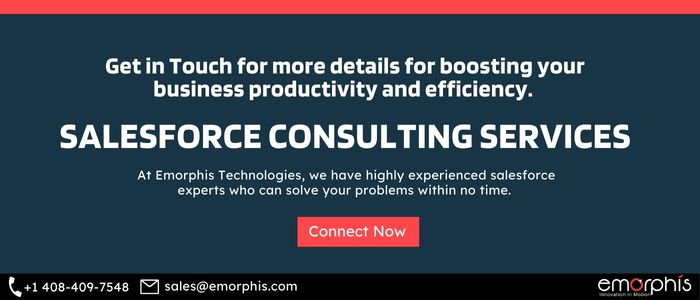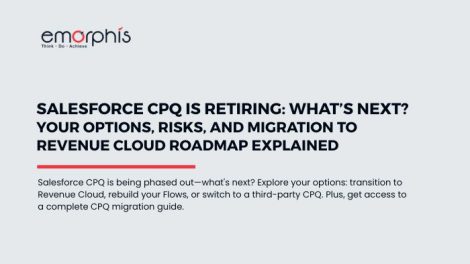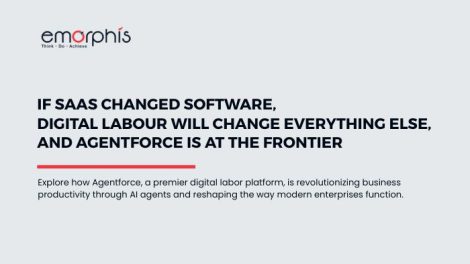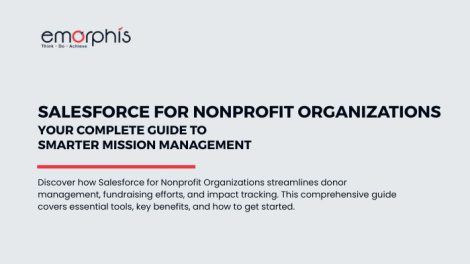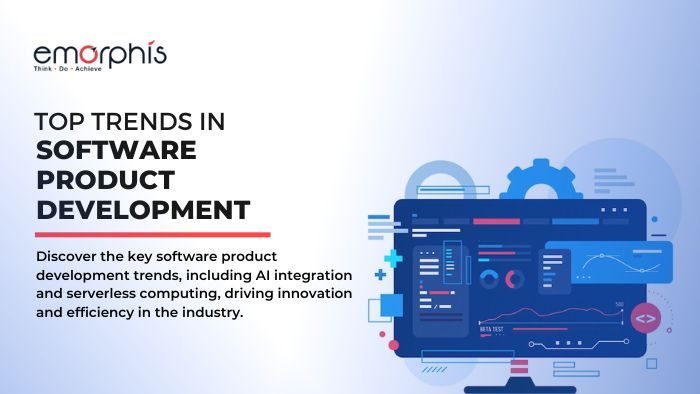Recognizing the Importance of CRM Systems
In today's dynamic and highly competitive business landscape, customer relationships are paramount. The ability to manage and nurture these relationships effectively can spell the difference between success and stagnation. This is precisely where Customer Relationship Management (CRM) systems come into play. In fact, CRM systems have become indispensable tools for businesses across various industries, transforming the way companies interact with customers and manage their data. Let's explore the intricacies of the world's number one CRM, Salesforce, which proves invaluable for businesses. A CRM system such as Salesforce for business offers numerous advantages. Let's delve deeper into its specifics.
Tailoring Salesforce for Diverse Business Needs
Among the myriad of CRM platforms available, Salesforce has emerged as a versatile and robust choice, capable of meeting the diverse needs of businesses. Whether you're a small startup looking to establish your presence or a large corporation aiming to streamline complex operations, Salesforce offers a comprehensive solution. Moreover, Salesforce not only addresses the current needs of your business but also provides scalability and flexibility for future growth. As a matter of fact, Salesforce's adaptability to different business sizes and its numerous advantages make it a top choice for businesses worldwide. Salesforce for business is the ideal choice for companies of all sizes, thanks to its adaptability, scalability, and numerous advantages.
Discover how Salesforce consulting companies in USA can help your business soar to new heights in customer relationship management.
Why Salesforce for Business?
Advantages of Salesforce Across Business Sizes
Salesforce's appeal lies in its ability to cater to businesses of all sizes. This CRM platform offers a plethora of advantages that make it an attractive option, regardless of your company's scale. Small businesses, for instance, can benefit from its affordability and scalability. This means you can start with a solution that meets your current needs and comfortably grow into more advanced features as your business expands. In fact, Salesforce provides a unified view of customer data, allowing small businesses to make informed decisions based on real-time insights.
Salesforce for business, with its affordability and scalability, ensures that small businesses can start with a solution tailored to their current needs and comfortably transition into more advanced features as they expand. This unified view of customer data empowers small businesses to make informed decisions based on real-time insights, illustrating the platform's appeal across companies of all sizes.
Scalability and Flexibility
One of Salesforce's standout features is its scalability and flexibility. As your business evolves and grows, Salesforce can seamlessly adapt to your changing requirements. Whether it's accommodating increased data volumes, expanding your user base, or integrating with third-party applications, Salesforce provides the tools and resources needed to facilitate growth. Moreover, the platform offers a wide range of add-on modules and integrations, allowing you to customize it to meet your specific needs. As a matter of fact, Salesforce is not just a CRM; it's a long-term solution designed to evolve alongside your business, ensuring you always have the right tools at your disposal.
Salesforce for business is not merely a CRM but a long-term solution that evolves alongside your company, guaranteeing you always have the right tools at your disposal to support growth and change.
We are the Best Salesforce Consulting Services, click the link to explore more.
Key Salesforce Features
Salesforce for business offers a powerhouse of features and capabilities, as a matter of fact, that can empower businesses in numerous ways. Whether you're a small startup or a large enterprise, understanding the key features of Salesforce is essential to harness its full potential. In this section, we'll explore some of the core features that make Salesforce a leading CRM platform.
1. Lead and Contact Management
Salesforce provides a centralized repository for managing leads, contacts, and accounts. Moreover, this feature ensures that your sales and marketing teams have access to up-to-date customer information, enabling them to nurture relationships effectively.
2. Opportunity Management
With Salesforce, businesses can track and manage sales opportunities through every stage of the sales pipeline. In fact, this feature allows for better forecasting, sales performance analysis, and targeted sales strategies.
3. Email Automation
Salesforce's email automation tools streamline communication with customers and prospects. In fact, you can automate email campaigns, track open rates, and monitor engagement, leading to more efficient and personalized interactions.
4. Workflow Automation
Workflow automation in Salesforce simplifies repetitive tasks and processes. It enables you to set up rules that trigger actions, such as sending alerts, assigning tasks, or updating records, saving time and reducing errors.
5. Reporting and Analytics
Salesforce's reporting and analytics capabilities provide insights into your business's performance. In fact, you can create custom reports and dashboards to visualize data, track key metrics, and make informed decisions.
6. Integration Capabilities
Salesforce for business offers robust integration options, allowing you to connect with other business tools also systems. As a matter of fact, this enables seamless data sharing and process automation across your organization.
7. Customization and Tailoring
Salesforce for business for all categories is highly customizable. You can tailor the platform to match your specific business needs, including creating custom objects, also, fields and workflows. In fact, this flexibility ensures that Salesforce adapts to your unique processes.
8. Mobile Accessibility
Salesforce is accessible on mobile devices, also enabling your sales and support teams to work from anywhere. Mobile apps offer on-the-go access to crucial customer data, calendars, and tasks.
9. AI-Powered Insights
Salesforce's Einstein Analytics leverages artificial intelligence to provide predictive and prescriptive insights. In fact, this helps businesses identify trends, anticipate customer needs, and make data-driven decisions.
10. AppExchange
Salesforce's AppExchange is an extensive marketplace of third-party applications and integrations. You can expand Salesforce's functionality by adding apps that suit your business requirements, such as marketing automation or customer support tools.
11. Security and Compliance
Salesforce for business in all categories offers to prioritize data security and compliance. The platform offers robust security features, data encryption, also compliance with industry standards and regulations, ensuring your data remains safe.
12. Customer Support and Service
Salesforce's Service Cloud offers comprehensive tools for managing customer support also service requests. In fact, this includes case management, knowledge bases, and omnichannel support for consistent and efficient customer assistance.
13. Community Building
Salesforce allows businesses to build online communities, enabling collaboration with customers, partners, and employees. As a matter of fact, these communities can serve as valuable hubs for engagement and knowledge sharing.
14. Social Media Integration
Salesforce integrates with social media platforms, allowing businesses to monitor social interactions and also, engage with customers on platforms like Twitter and Facebook directly.
Salesforce for business offers key features encompassing a wide range of capabilities that cater to businesses of all sizes and industries. Whether you're looking to streamline sales processes, improve customer service, or gain valuable insights from data, Salesforce has the tools and functionalities to help you achieve your goals. In fact, these features, combined with Salesforce's scalability and flexibility, make it a versatile and indispensable asset for modern businesses.

Salesforce for Small Business - Transforming Operations and Boosting Growth
Small businesses are the backbone of the global economy, and they often face unique challenges when it comes to managing customer relationships, sales, and growth. In today's fast-paced and competitive market, having the right tools to streamline operations and nurture customer relationships is also crucial. Salesforce, a renowned Customer Relationship Management (CRM) platform, offers a tailored solution that also caters to the specific needs of small businesses. In this section, we will explore how Salesforce for small businesses can be a game-changer.
1. Affordability and Scalability
One of the most significant advantages of using Salesforce for small businesses is its affordability and scalability. In fact, small businesses have limited budgets, and Salesforce for small businesses offers pricing plans that cater to these constraints. You can start with a basic plan and then scale up as your business grows. This flexibility ensures that you get the features you need without breaking the bank.
2. Lead and Contact Management
Salesforce for small business also provides a centralized platform for managing leads, contacts, and accounts. In fact, this feature is invaluable for small businesses looking to build and nurture relationships with prospects and customers. You can track interactions, schedule follow-ups, and also, gain insights into your sales pipeline, all within a user-friendly interface.
3. Email Automation
Small businesses often rely heavily on email marketing to reach their audience. In fact, Salesforce for small businesses offers robust email automation tools that allow you to create personalized email campaigns, automate follow-ups, and track engagement metrics like open rates and click-through rates. This automation saves time and also, ensures that your messages are targeted and timely.
4. Customization
Every small business has its unique processes and workflows. Salesforce's high degree of customization, in fact, allows you to tailor the platform to match your specific needs. In fact, you can create custom fields, objects, and workflows to reflect your business's unique operations hence, this adaptability ensures that Salesforce aligns seamlessly with your existing processes.
5. AppExchange
Salesforce's AppExchange is a marketplace of third-party applications and integrations that can enhance the functionality of your CRM. Small businesses can leverage these apps to add capabilities such as marketing automation, e-commerce, or customer support, without the need for extensive development work.
6. Analytics and Reporting
Understanding your business's performance is essential for growth. Salesforce's reporting and analytics tools allow you to create custom reports and dashboards, also providing insights into your sales, marketing, and customer service efforts. These insights empower data-driven decision-making and as a matter of fact, help you identify areas for improvement.
7. Scalable Support
As your small business grows, so do your support needs. Salesforce's Service Cloud offers tools for case management, knowledge bases, and also, omnichannel support. In fact, this ensures that you can provide consistent and efficient customer service, even as your customer base expands.
8. Mobile Accessibility
In today's mobile-driven world, having access to your CRM on the go is crucial. In fact, Salesforce for small businesses offers mobile apps that enable your sales and support teams to access critical customer data, calendars, and tasks from anywhere, ensuring that you're always connected to your business.
9. Integration Capabilities
Small businesses often use multiple software solutions for various purposes. Salesforce's robust integration capabilities allow you to connect your CRM with other tools and systems, ensuring seamless data sharing and process automation.
Salesforce for small businesses is more than just a CRM platform; it's a strategic asset that can transform your operations, also improve customer relationships, and drive growth. Its affordability, scalability, and in fact, wide array of features make it an ideal choice for small enterprises looking to compete and thrive in today's business landscape. Whether you're just starting or looking to take your small business to the next level, Salesforce for Small Business has the tools and resources to help you succeed.
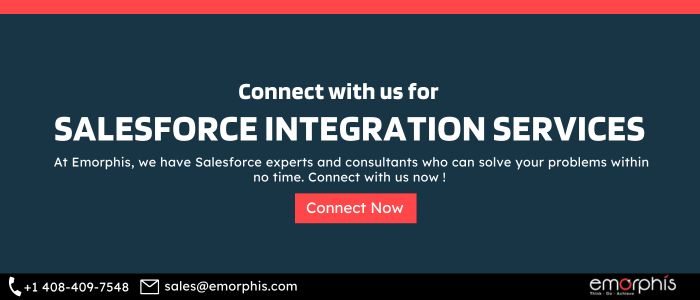
Salesforce for Enterprise - Empowering Large Businesses for Success
Large enterprises operate on a different scale, with complex sales processes, vast customer bases, and multifaceted teams. Managing these aspects efficiently while ensuring excellent customer service can be a monumental task. Salesforce, a leading Customer Relationship Management (CRM) platform, as a matter of fact, it offers a comprehensive solution designed to meet the unique needs of large enterprises. In this section, we'll explore how Salesforce can transform operations and also, drive success for enterprises.
1. Robust Sales Management
Salesforce for enterprise provides a robust set of tools for managing complex sales processes. Moreover, with features like opportunity management, sales forecasting, and territory management, large businesses can gain better control over their sales pipeline, track performance, and allocate resources effectively.
2. Customer Data Centralization
Enterprises often deal with extensive customer data spread across various departments and locations. Salesforce centralizes this data, providing a single source of truth, hence, this helps in a unified view of customer information and ensures that teams across the organization have access to accurate and up-to-date data.
3. Analytics and Business Intelligence
Data-driven decision-making is crucial for enterprises. Salesforce offers advanced analytics and also, reporting tools that allow businesses to create custom reports and dashboards. In fact, this empowers executives and managers with real-time insights into sales performance, customer behavior, and operational efficiency.
4. AI-Powered Insights
Salesforce's Einstein Analytics leverages artificial intelligence (AI) to provide predictive and prescriptive insights. Enterprises can also use AI to identify trends, anticipate customer needs, and optimize sales and marketing strategies for better results.
5. Multi-Channel Marketing
Large enterprises often engage with customers through various channels, including email, social media, and advertising. Salesforce enables multi-channel marketing automation, as a matter of fact, allowing businesses to create personalized and targeted marketing campaigns across multiple platforms.
6. Customization and Scalability
Every enterprise has unique processes and workflows. Salesforce's high degree of customization, in fact, allows businesses to tailor the platform to match their specific requirements. Moreover, Salesforce is highly scalable, making it suitable for enterprises experiencing rapid growth.
7. Integration Capabilities
Enterprises typically use a range of software solutions for different purposes. Salesforce's robust integration capabilities allow for seamless connections with other tools and systems, ensuring data consistency and also, process automation across the organization.
8. Service Excellence
Large enterprises require a comprehensive customer support solution. Salesforce's Service Cloud offers features such as case management, knowledge bases, and omni-channel support. In fact. this ensures consistent and efficient customer service, even with a large customer base.
9. Collaboration and Workflow Automation
Large organizations often have multiple teams and departments working together. Salesforce provides collaboration tools and workflow automation features that help streamline processes, hence, reduce manual tasks, and improve cross-functional communication.
10. Enterprise Security and Compliance
Data security and compliance are paramount for enterprises. Salesforce prioritizes these aspects, offering robust security features, data encryption, and compliance with industry standards also, regulations, ensuring that sensitive data remains protected.
Salesforce for Enterprise is a powerful and versatile CRM platform that empowers large businesses to achieve operational excellence, as a matter of fact, enhance customer relationships, and drive growth. Its comprehensive features, scalability, and flexibility make it a strategic asset for enterprises looking to stay competitive and also, agile in today's fast-paced business environment. Whether you're managing a vast customer base, intricate sales processes, or multifaceted teams, Salesforce provides the tools and resources needed to succeed at an enterprise scale.

Scaling Your Business with Salesforce - A Blueprint for Growth and Efficiency
As your business grows, so do the complexities of managing customer relationships, sales, and operational workflows. To stay competitive and maintain efficiency, scaling your business operations becomes crucial. In fact, Salesforce, a leading Customer Relationship Management (CRM) platform, offers a robust framework for scaling your business effectively. In this section, we'll explore key strategies for scaling your business with Salesforce.
1. Expanding Your Salesforce Usage
Expanding your Salesforce usage involves harnessing the full potential of the platform as your business evolves. Here are some essential steps to consider:
- User Adoption: Ensure that your teams are fully trained and proficient in using Salesforce. In fact, conduct regular training sessions to keep everyone up to date with the latest features and best practices.
- Customization: Tailor Salesforce to match your evolving business needs. Also, create custom objects, fields, and workflows to align with your unique processes.
- Advanced Features: Explore advanced features like Einstein Analytics, AI-driven insights, and automation tools to optimize your operations and as a matter of fact, decision-making.
- Multi-Cloud Solutions: Consider integrating Salesforce Clouds (Sales Cloud, Health Cloud, Service Cloud, Marketing Cloud, etc.) to create a seamless, in fact, unified experience across your customer-facing functions.
- Mobile Accessibility: Encourage your teams to use Salesforce's mobile apps to stay connected and productive while on the go.
2. Integration with Third-party Apps
Integration with third-party applications is a strategic move to extend the functionality of Salesforce. Here's how it can help your business scale:
- Enhanced Functionality: Identify apps that complement Salesforce's capabilities. For example, integrate marketing automation tools, e-commerce platforms, or project management software to streamline operations.
- Data Consolidation: Ensure data consistency by integrating Salesforce with other business systems. In fact, this eliminates data silos and reduces manual data entry, improving accuracy and efficiency.
- Seamless Workflows: Automate processes by connecting Salesforce with other apps, creating seamless workflows that reduce manual intervention and also, increase productivity.
- Scalable Infrastructure: Choose apps that can scale alongside your business. Scalability ensures that your integrated solutions can accommodate increasing workloads as your business grows.
3. Handling Growth and Increased Workloads
Managing growth and increased workloads is a challenge every scaling business faces. Salesforce can assist in addressing these challenges:
- Scalability: Salesforce is designed to grow with your business. It can handle increasing volumes of data, users, and customer interactions without compromising performance.
- Data Management: Implement data governance practices to maintain data quality and ensure that your Salesforce instance remains efficient and reliable.
- Automation: Leverage Salesforce's workflow automation and process builder tools to automate repetitive tasks and streamline workflows as your business scales.
- Support and Training: Invest in ongoing training and support for your Salesforce users to maximize their efficiency and ensure they can handle increased workloads.
- Performance Monitoring: Continuously monitor the performance of your Salesforce instance and identify potential bottlenecks or areas for optimization. Regularly review and refine your implementation.
- Scaling Customer Support: If you offer customer support through Salesforce, consider the growth of your support team and implement the necessary tools and processes to manage increased customer inquiries effectively.
Salesforce provides a powerful framework for scaling your business operations efficiently. By expanding your Salesforce usage, integrating with third-party apps, and effectively handling growth and as a matter of fact, increased workloads, you can leverage Salesforce's capabilities to drive growth, enhance customer relationships, and maintain operational excellence as your business continues to expand. in recent times a release from Salesforce, Salesforce Einstein GPT, enhances decision-making and automates processes through AI-powered insights and natural language understanding. Overall, we can state that with the right strategies and a well-executed Salesforce implementation, scaling your business can be a manageable and rewarding journey.

The Role of a Salesforce Business Analyst - Bridging the Gap between Technology and Business Success
In the dynamic world of business technology, where rapid advancements and evolving customer expectations shape the landscape, the role of a Salesforce Business Analyst has become increasingly vital. These professionals serve as a bridge between technology and business operations, ensuring that Salesforce implementations align with the organization's strategic goals and drive success. In this section, we'll delve into the essential role of a Salesforce Business Analyst and their contributions to business growth and efficiency.
1. Requirements Gathering and Analysis
At the core of a Salesforce Business Analyst's role is the collection and analysis of business requirements. They work closely with stakeholders across different departments to understand their needs, pain points, and objectives. This involves conducting interviews, workshops, and surveys to capture comprehensive and accurate requirements.
2. Solution Design and Planning
Once the requirements are gathered, Salesforce Business Analyst collaborates with Salesforce administrators, developers, and architects to design solutions that meet those requirements. They create detailed functional specifications, process flows, and data models to ensure a clear understanding of how Salesforce will address business needs.
3. Customization and Configuration
Salesforce Business Analyst is often involved in the customization and configuration of Salesforce to align it with specific business processes. They leverage Salesforce's extensive customization capabilities to create custom objects, fields, workflows, and automation rules that streamline operations and improve efficiency.
4. User Training and Adoption
A crucial aspect of the role is ensuring that end-users are proficient in using Salesforce. Salesforce Business Analyst conducts user training sessions, creates documentation, and offers ongoing support to promote user adoption and maximize the platform's value.
5. Data Management and Quality
Salesforce is heavily reliant on data, and Salesforce Business Analyst plays a role in data management. They define data models, establish data governance practices, and oversee data quality initiatives to ensure that Salesforce contains accurate and reliable information.
6. Testing and Quality Assurance
Before deploying new Salesforce features or changes, Salesforce Business Analyst leads the testing efforts. They develop test plans, conduct testing, and ensure that the system performs as expected, identifying and resolving any issues that may arise.
7. Reporting and Analytics
Salesforce Business Analyst works with stakeholders to define reporting and analytics requirements. They build custom reports and dashboards to provide insights into sales, marketing, customer service, and other critical areas of the business. These insights support data-driven decision-making.
8. Continuous Improvement
The role doesn't end with the initial implementation. Salesforce Business Analyst continually monitors the system's performance, gathers feedback from users, and identifies areas for improvement. They work to enhance existing features, address new business needs, and ensure that Salesforce evolves with the organization.
9. Project Management and Communication
Salesforce Business Analyst often serves as project manager for Salesforce initiatives. They create project plans, track progress, and communicate updates to stakeholders. Effective communication and collaboration are essential skills to ensure that everyone is aligned with the project's goals and timelines.
10. Salesforce Best Practices
Salesforce is a vast and ever-evolving platform, and Salesforce Business Analyst stays up-to-date with the latest best practices and industry trends. They apply this knowledge to make informed recommendations and guide the organization toward maximizing the benefits of Salesforce.
Overall the role of a Salesforce Business Analyst is pivotal in ensuring that Salesforce implementations align with an organization's strategic goals and drive efficiency, productivity, and growth. These professionals bring together a deep understanding of business processes and Salesforce's technical capabilities, making them valuable assets in leveraging Salesforce's full potential to achieve business success. Their ability to bridge the gap between technology and business operations is instrumental in making Salesforce a strategic asset for modern businesses.
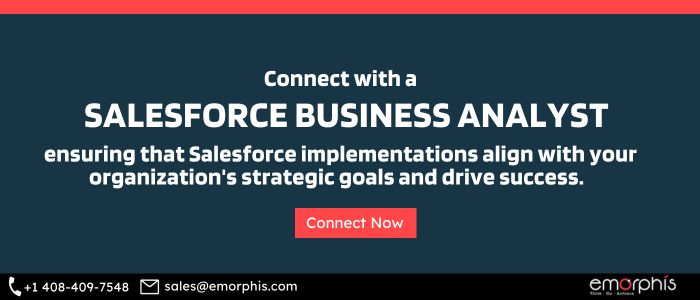
Implementing Salesforce can be a transformative investment for your organization, but it's essential to navigate the pricing models effectively and optimize costs to ensure a sustainable and efficient operation. In this section, we will explore Salesforce pricing models and strategies for budgeting and cost optimization.
Salesforce Pricing Models
Salesforce offers several pricing models to accommodate businesses of various sizes and needs. As a matter of fact, understanding these models is crucial for making informed decisions about your Salesforce investment.
1. Per User Pricing
This model charges a fee for each user accessing the Salesforce platform. It is a common choice for businesses with a small to medium-sized user base. The cost varies depending on the edition (Essentials, Professional, Enterprise, or Unlimited) and any additional features or add-ons required.
2. Usage-Based Pricing
Some Salesforce services, like Salesforce Marketing Cloud and Pardot, have usage-based pricing models. You pay based on the volume of emails sent, data storage, or the number of leads or contacts in your database.
3. Custom Pricing
Large enterprises or organizations with unique requirements may negotiate custom pricing with Salesforce. This often includes tailored packages and services to meet specific needs.
4. Nonprofit and Education Pricing
Salesforce offers discounted pricing for nonprofit organizations and educational institutions, supporting their missions with cost-effective solutions.
5. AppExchange Costs
When integrating third-party apps from the Salesforce AppExchange, additional costs may apply. These costs depend on the specific apps and services you choose.
Connect with us for Salesforce App Development Services
Best Practices for Successful Salesforce Implementation, Integration, and Customization
Implementing Salesforce, integrating it with other systems, and customizing it to meet your unique business needs can be a complex and also, a critical undertaking. To ensure a successful implementation that maximizes the value of Salesforce, in fact, it's important to follow best practices. In this section, we'll explore these best practices for Salesforce implementation, integration, also customization.
Salesforce Implementation Best Practices
- Define Clear Objectives: Start by defining clear and measurable objectives for your Salesforce implementation. Understand what you want to achieve, whether it's improving sales efficiency, enhancing customer service, or optimizing marketing campaigns.
- Engage Stakeholders: Involve key stakeholders from different departments in the planning and implementation process. Their insights and feedback are crucial for aligning Salesforce with your organization's needs.
- Select the Right Edition: Choose the Salesforce edition that best fits your requirements and budget. Consider factors such as the number of users, features needed, and scalability.
- Data Migration Planning: Develop a comprehensive data migration plan. Cleanse and prepare your data before migration to ensure accuracy and integrity in your new Salesforce environment.
- User Training and Adoption: Invest in user training and change management programs to ensure that your team is proficient in using Salesforce. User adoption is key to realizing the platform's value.
- Design for Scalability: Build your Salesforce architecture with scalability in mind. Anticipate growth and ensure that your implementation can accommodate increased data volumes and user counts.
Explore our Salesforce Implementation Services
Salesforce Integration Best Practices
- Understand Data Needs: Before integrating Salesforce with other systems, thoroughly understand your data requirements. Identify what data needs to be shared and in what direction (e.g., Salesforce to ERP or vice versa).
- Choose the Right Integration Tools: Salesforce offers various integration tools, including APIs, connectors, and middleware. Select the tools that best align with your integration requirements and also, technology stack.
- Data Mapping and Transformation: Establish clear data mapping and transformation rules to ensure that data is consistent and also, compatible between systems. Data quality is essential for accurate reporting and as a matter of fact, decision-making.
- Real-time vs. Batch Integration: Determine whether real-time or batch integration is suitable for your business processes. Real-time integration provides up-to-the-minute data but may require more resources.
- Testing and Monitoring: Thoroughly test your integrations in a sandbox environment before deploying them to production. Implement monitoring and error-handling mechanisms to ensure data flows smoothly.
Explore our Salesforce Integration Services
Salesforce Customization Best Practices
- Requirements Gathering: Begin by gathering detailed requirements from stakeholders. Ensure a deep understanding of business processes and needs before initiating customization.
- Out-of-the-Box Features: Explore Salesforce's out-of-the-box features and functionalities before resorting to custom development. Often, existing features can address your requirements.
- Governance and Documentation: Implement governance processes and also, maintain detailed documentation of customizations. This includes custom code, workflows, and configurations.
- Sandbox Environments: Use Salesforce's sandbox environments for development, testing, and staging. Avoid making direct changes to your production environment.
- Code Review and Quality: If custom code is necessary, conduct code reviews to ensure best practices, also, security, and performance. Follow development standards and guidelines.
- Change Management: Implement change management practices to track and communicate customizations. Also, ensure that stakeholders are aware of changes and their impact.
- Backup and Recovery: Regularly back up your Salesforce instance and data. Establish disaster recovery plans to mitigate risks associated with data loss or system failures.
- User Feedback: Encourage users to provide feedback on customizations. Regularly assess the effectiveness of customizations and make adjustments as needed.
Explore our Salesforce Customization Services
Overall, following best practices for Salesforce implementation, integration, and customization is essential to achieve a successful and efficient implementation that aligns with your organization's goals. By prioritizing clear objectives, engaging stakeholders, also adopting proper planning and governance, you can leverage Salesforce to drive business growth and operational excellence.
Conclusion
In conclusion, Salesforce is more than just a CRM platform; it's a strategic asset that empowers businesses to thrive in today's ever-evolving business environment. In fact, with the right strategies, considerations, and best practices, organizations can leverage Salesforce to optimize operations, drive growth, and foster lasting customer relationships. Whether you're a small startup or a large enterprise, Salesforce provides the tools and resources needed to succeed and stay ahead in the competitive business landscape.
Explore more on Salesforce Consulting Services




